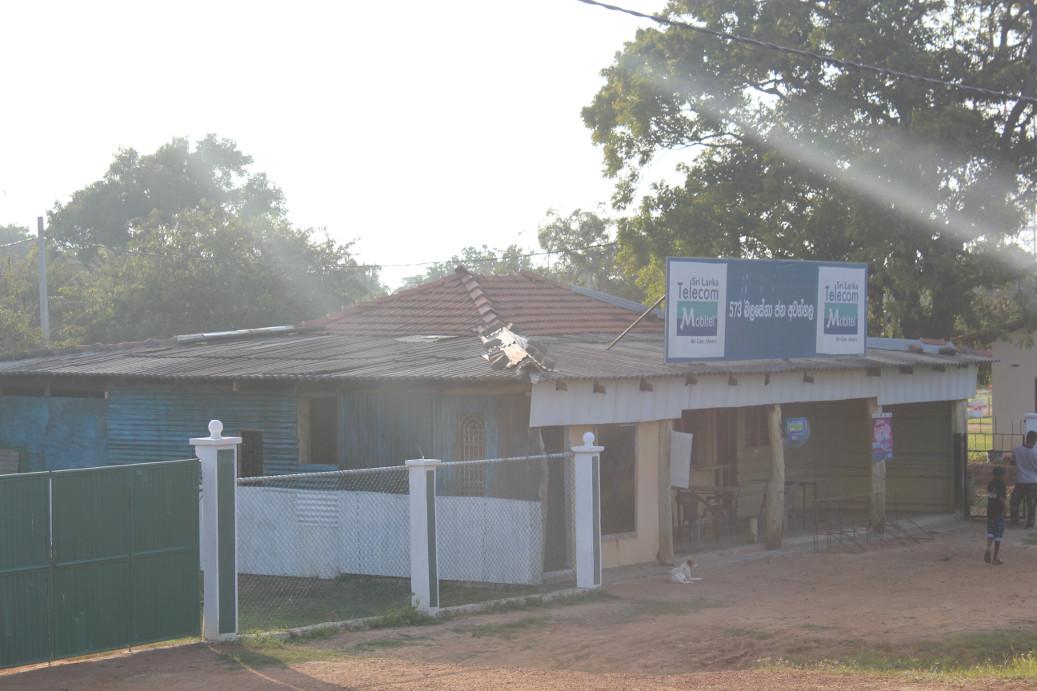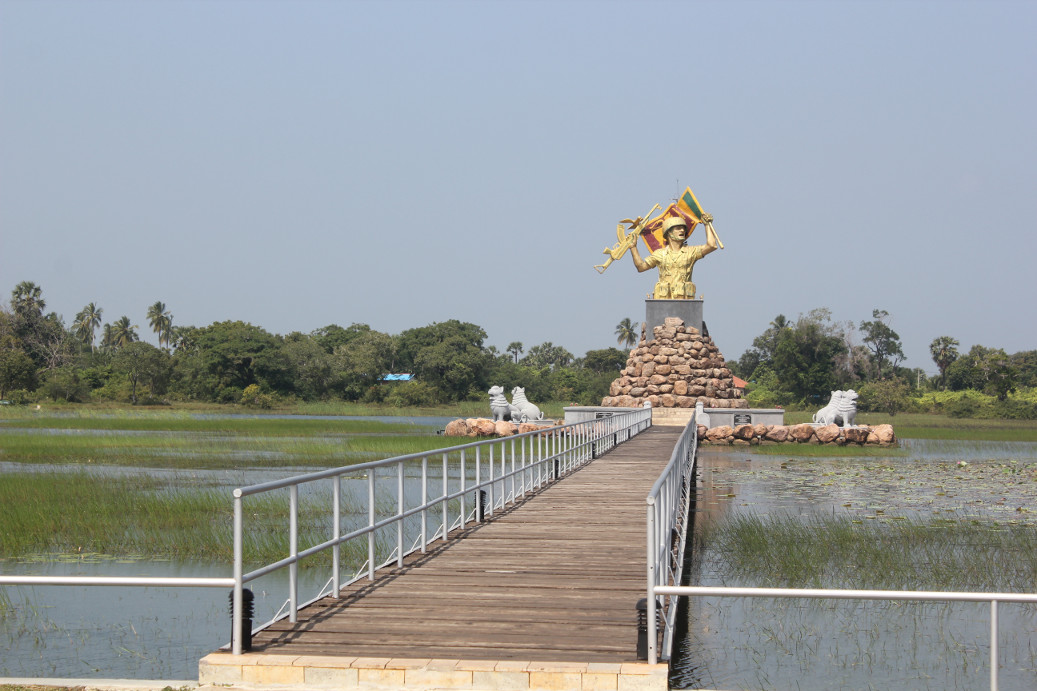A new report has detailed ongoing human rights violations and militarisation across all eight districts of the North-East.
Harassment and violence by security forces, ongoing occupation of Tamil land and the extensive militarisation are fostering a sense of disillusionment amongst the Tamil population in the North-East, the report by Washington-based PEARL says, based on interviews it conducted in the North-East.
 |
| A shop operated by the military. The board identifies it as attached to and operated by the 573 Brigade, January 2016 (Photo: PEARL) |
The report notes that while more obvious surveillance has lessened, covert intelligence gathering continued, including of civil society, human rights and political activists.
The military's "massive operational presence" and its involvement in civilian activities not only contributes to a sense of being under occupation but also harms the economic development of the North-East, it further said.
“Sri Lanka’s continuing lack of progress on key issues such as accountability and demilitarization throws into question the government’s sincerity and political will to implement the pledges it has made,” PEARL’s Advocacy Director Mario Arulthas said.
“The government could have taken strong, concrete measures to build confidence amongst Tamils over the last 15 months, but instead has continued policies in place under the Rajapaksa regime. This is not conducive for accountability and for an end to decades of state-impunity for crimes, both of which are integral to a lasting peace on the island.”
See the full report here. For photos accompanying the report see here.
The report highlighted military involvement in schools and its operation of farms and hotels.
"The military is also heavily involved in the North-Eastern economy, running large farms (including on land appropriated from displaced people) and a network of shops, all of which have signage reflecting the details of the military units responsible," the report notes.
"One year since the change in government, the militarization which became ‘normalized’ during the Rajapaksa administration continues largely unabated and is a key obstacle to the post-war normalization, both in terms of local governance and public life more generally."
"Persisting a year after the change in government, the heavy military presence, triumphalist victory monuments, and Sinhala chauvinist character of the state’s security structures are exacerbating feelings of oppression and occupation, and fuelling Tamil disillusionment, resentment and mistrust towards the government."
The military operated at least 5 farms in the Northern Province alone, and several hotels, including at least one built on the site of a former LTTE cemetery.
 |
| “Victory” monument in Puthukudiyiruppu, Mullaithivu (Photo: PEARL) |
Harassment of civil society activists and journalists by security forces also continued.
"The military and police continue to harass members of civil society organisations, human rights activists, and journalists. These actions are described as systematic and intended to intimidate campaigners, stifle political dissent, and to deter potential activists from getting involved. The photographing and filming of protestors is commonplace and intimidates many members of the public, causing them to stay away from such activities for fear of reprisals by the security forces," the report states.
The report also highlighted the lack of economic development and societal rebuilding after the end of the armed conflict and detailed how this, alongside the slow pace in reforms and the continuation of violations led to increasing scepticism and disillusionment amongst the Tamil population.
"Underpinning this growing suspicion and scepticism about accountability, a political solution and ‘reconciliation’ more generally, are a set of dynamics in the North-East with regards to memorializing the war: Tamils are prevented, by both official directives and actions by the military, from commemorating the victims of the war. Further, Tamils’ traumatic experiences are compounded by the persistent glorification of the Sri Lankan military through multiple victory monuments in the North-East. It is notable that the military has been erecting such monuments predominantly in Tamil areas of the country – which, as noted above, is also where most of the military forces and the majority of their major bases are maintained. This includes new military bases established on the sites of cemeteries and other sites of remembrance established by the LTTE and which were systematically razed by the military first," it said.
We need your support
Sri Lanka is one of the most dangerous places in the world to be a journalist. Tamil journalists are particularly at threat, with at least 41 media workers known to have been killed by the Sri Lankan state or its paramilitaries during and after the armed conflict.
Despite the risks, our team on the ground remain committed to providing detailed and accurate reporting of developments in the Tamil homeland, across the island and around the world, as well as providing expert analysis and insight from the Tamil point of view
We need your support in keeping our journalism going. Support our work today.
For more ways to donate visit https://donate.tamilguardian.com.

